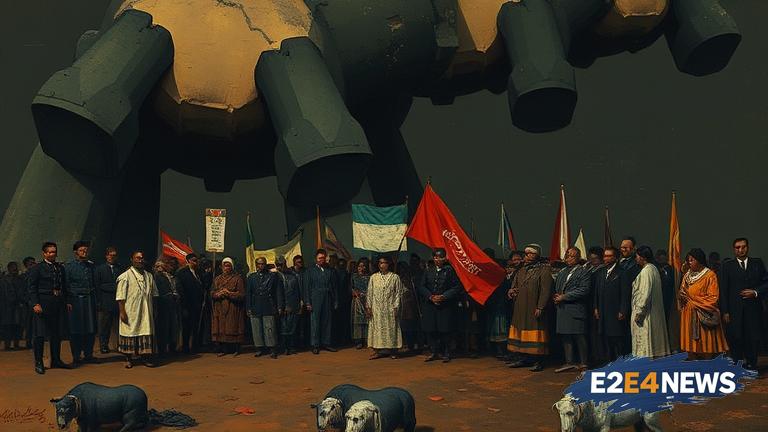The concept of seeking apology for genocide is a complex and sensitive issue that has gained significant attention in recent years. As nations confront their past, they are forced to acknowledge the atrocities committed by their ancestors, and take steps towards reconciliation and healing. This process is not only important for the victims and their families but also for the nation as a whole, as it allows for a more accurate understanding of history and a chance to learn from past mistakes. In many cases, the road to apology is long and arduous, requiring significant political will and courage. However, the benefits of seeking apology and reconciliation far outweigh the costs, as it can help to promote national unity, foster international cooperation, and prevent similar atrocities from occurring in the future. One notable example of a nation seeking apology for genocide is Germany, which has taken significant steps to acknowledge and atone for the Holocaust. The German government has established numerous memorials and museums, and has provided significant compensation to victims and their families. Similarly, the Japanese government has also begun to acknowledge its role in World War II, including the Nanking Massacre and other atrocities committed against Chinese civilians. In contrast, some nations have been slow to acknowledge their past wrongdoings, and have instead sought to downplay or deny their involvement in genocidal activities. The Turkish government, for example, has long denied the Armenian Genocide, despite overwhelming evidence to the contrary. The importance of seeking apology for genocide cannot be overstated, as it is a crucial step towards reconciliation and healing. By acknowledging the past and taking responsibility for their actions, nations can begin to rebuild trust and promote national unity. Furthermore, seeking apology can also help to prevent similar atrocities from occurring in the future, by promoting a culture of accountability and respect for human rights. In addition to Germany and Japan, other nations that have sought apology for genocide include Canada, Australia, and the United States. Each of these countries has taken significant steps to acknowledge and atone for their past wrongdoings, including the establishment of truth and reconciliation commissions, and the provision of compensation to victims and their families. The process of seeking apology for genocide is often fraught with difficulty, and requires significant political will and courage. However, the benefits of seeking apology and reconciliation far outweigh the costs, and can help to promote national unity, foster international cooperation, and prevent similar atrocities from occurring in the future. As the world becomes increasingly interconnected, the importance of seeking apology for genocide will only continue to grow. By acknowledging the past and taking responsibility for their actions, nations can begin to rebuild trust and promote national unity, and can work towards a more just and equitable future for all. The role of international organizations, such as the United Nations, is also crucial in promoting accountability and respect for human rights. These organizations can provide a framework for nations to seek apology and reconciliation, and can help to promote a culture of accountability and respect for human rights. In conclusion, seeking apology for genocide is a complex and sensitive issue that requires significant political will and courage. However, the benefits of seeking apology and reconciliation far outweigh the costs, and can help to promote national unity, foster international cooperation, and prevent similar atrocities from occurring in the future. As nations continue to confront their past, it is essential that they prioritize seeking apology and reconciliation, and work towards a more just and equitable future for all. The process of seeking apology for genocide is ongoing, and will likely continue to be a major issue in international relations for years to come. As such, it is essential that nations prioritize seeking apology and reconciliation, and work towards a more just and equitable future for all. By doing so, they can help to promote national unity, foster international cooperation, and prevent similar atrocities from occurring in the future. The importance of seeking apology for genocide cannot be overstated, and it is essential that nations prioritize this issue in the years to come. Seeking apology for genocide is not only a moral imperative, but also a crucial step towards promoting national unity, fostering international cooperation, and preventing similar atrocities from occurring in the future. As the world becomes increasingly interconnected, the importance of seeking apology for genocide will only continue to grow, and it is essential that nations prioritize this issue in the years to come.
